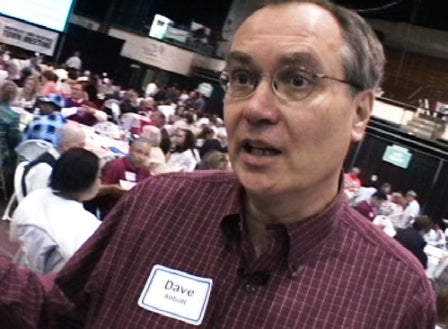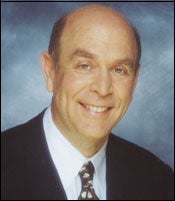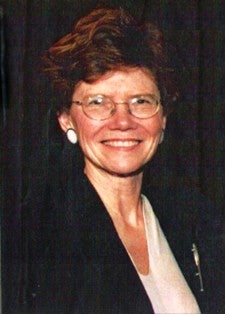Philanthropy needs to reinvent itself

David Abbott
March 27
By Thomas J. Walsh
For PlanPhilly
More than ever before, charitable foundations have the resources and the will to reinvent struggling American neighborhoods. But even as their ambitions grow, old institutional problems remain.
That was the consensus of a panel of redevelopment and philanthropic executives Thursday morning at the Philadelphia Marriott, where a city planning conference (“How Does Place Matter?”) was in its second day, focusing on the reinvention of older communities.
David Abbott, executive director of the George Gund Foundation in Cleveland, had some self-effacing advice for the hundreds of attendees who might deal with philanthropic organizations.
“You need to find ways to essentially make us more uncomfortable,” Abbott said. “We’re not used to being uncomfortable. But to achieve the kind of change we need in our communities, we need to step out of our comfort zone.”

A good start in that direction would be for foundations to play better with others, said Richard Baron, chairman and CEO of McCormack Baron Salazar, Inc., a St. Louis-based for-profit developer of economically integrated urban neighborhoods. He said foundations are often insular and prone to egotism related to “ownership” of projects and personal grudges. And that’s not the only obstacle to marrying philanthropy effectively with planning.
“There really is no institutional memory among foundations,” Baron said. “The staff people turn [over] very frequently … and 15 years later, the foundation embarks on the same thing they did 15 years earlier. Hundreds of millions of dollars are put into the marketplace with no idea of what works and what doesn’t.”
What’s more, foundations continue to be risk-averse, he said. And while being direct and honest with philanthropists might be admirable, he said grantees understand all too well “the golden rule – he who has the gold, rules.”
Baron wasn’t done. Another of the real deficiencies in the United States (and in Europe, as well) is “we have not trained social entrepreneurs to take on change in neighborhoods.” He cited New Orleans, where his company is helping to facilitate reinvestment efforts, as an example. The lack of rebuilding knowledge is evident in both the public and private sectors in the Crescent City, he said, and it reminds him of American cities hard-hit by riots in the 1960s, cities that still have not recovered from those events.
“We could make a material change in what’s going on in the neighborhoods, but there needs to be a pooling of resources,” Baron said.

Feather Houstoun, president of the Philadelphia-based William Penn Foundation, said that a “hard truth” about market-based community financing is that one foundation’s investment is often not followed by others in the communities they are trying to help. The blighted city of Chester, Pa. is an example.
“We’re looking at that city in very different ways, because we see the market-based investments on one side and the needs of the people in the communities on the other,” she said. A single investment won’t do. “It has to leverage other investment.” The involvement of “anchor institutions” is vital to attaining that kind of leverage, she added.
Baron agreed, and said that pre-financing is among the biggest challenges to the way foundations operate, with a lack of understanding that “early money” is the most difficult to find. That’s exacerbated by the current credit crunch, with risk-averse banks making it “almost impossible” to find redevelopment funds. Other more established means of capital, such as federal block grants, are eroding through inflation and Congressional indifference.
That makes ground-level partnerships all the more important, Houstoun said. “The foundation has to not see itself as the center of the universe.” If necessary, compromise between interested parties should be demanded, with the foundation at the center acting as broker.
Jeremy Nowak, president and CEO of The Reinvestment Fund Inc. in Philadelphia and the session’s moderator, made the point that financial risk is often eclipsed by “reputational risk.”
“I actually think that foundations have less at stake in [that] regard,” said Abbott. “What will happen to our reputations, really? We still will be able to write checks. … We could be the most risk-taking [organizations].] In some ways it’s the easiest thing to risk.”
The conference is sponsored by the Federal Reserve Bank of Philadelphia, and continues through Friday.
Jean Holland, a community planner with the Montgomery County (Pa.) Planning Commission, said the conference was helping her put the challenges of her county seat, Norristown, into better perspective.
“We have a lot of the same issues as those of the cities, except on a smaller scale,” she said. “A lot of aging housing, some market-rate housing, but not nearly enough. We’re not the stable community we once were.”
Contact the reporter at thomaswalsh1@gmail.com
WHYY is your source for fact-based, in-depth journalism and information. As a nonprofit organization, we rely on financial support from readers like you. Please give today.






